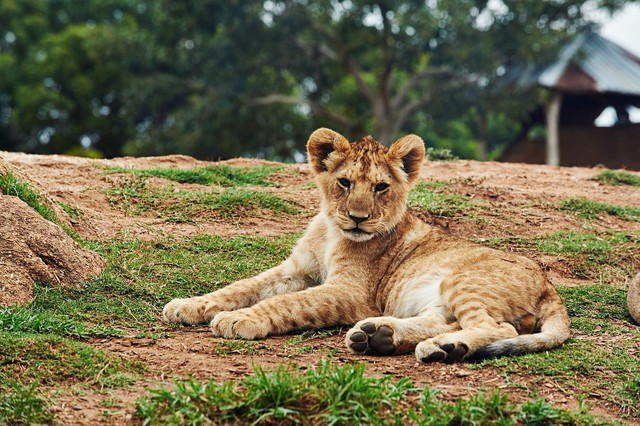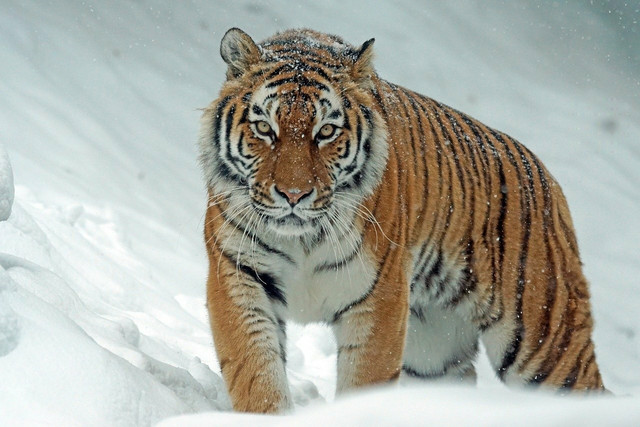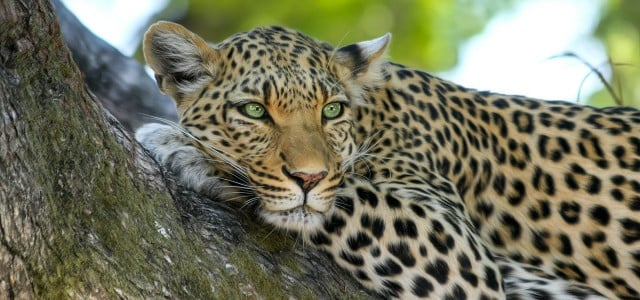Big cats have an allure unlike many other animals. Exotic pet cats may seem like a good idea, but these majestic creatures belong in the wild.
There are many reasons people may want to keep an exotic animal as a pet. From a love for animals to the desire to show off something unique and impressive, lots of people are intrigued by the idea of keeping a wild animal in their own backyard or even their home. Big cats are beautiful creatures, and some people can be easily influenced by photos on social media, and tv shows and movies like Tiger King and Aladdin.
Popular Netflix series Tiger King took the world by storm in 2020 when it was released, highlighting the somewhat confusing fact that it’s actually legal to own exotic pet cats in some states. While Tiger King addressed some of the problems of the exotic pet trade, the African Wildlife Foundation reports that the documentary “downplays the magnitude of the big cat trade.” It also may have romanticized the ownership of exotic animals.
Laws Against Exotic Pet Cat Ownership

(Foto: CC0 / Pixabay / Pexels)
Currently, there is no US federal law prohibiting exotic pet cats. It is up to state governments to regulate exotic cat ownership, so the rules differ across the country. Alabama, Wisconsin, North Carolina, and Nevada have no laws whatsoever governing exotic cat ownership.
Thirteen states allow exotic pet cats when obtained with a permit: Maine, Rhode Island, Delaware, Pennsylvania, Indiana, Missouri, Mississippi, Oklahoma, Texas, South Dakota, North Dakota, Montana, and Idaho. Virginia, West Virginia, Tennessee, Florida, and Arkansas have banned big cats, but have more specific regulations on smaller exotic cats and native felines.
On the other hand, twenty-one states have banned ownership of big cats altogether: Alaska, Hawaii, California, Oregon, Washington, Arizona, Utah, Wyoming, Colorado, New Mexico, Nebraska, Kansas, Iowa, Minnesota, Illinois, Michigan, Louisiana, Kentucky, Ohio, Georgia, South Carolina, Maryland, New Jersey, New York, Connecticut, Massachusetts, Vermont, and New Hampshire.
Still, the World Wildlife Fund estimates there are more tigers in the US than exist in the wild. There are also several loopholes in many states. Popular big cats like lions, tigers, and leopards may be tough to obtain in certain areas, but many states make exceptions for bobcats, jungle cats, ocelots, and cat hybrids. Unfortunately, big cat traders encourage the purchase of these smaller cats in order to get around red tape. Even the states which have outright banned big cat ownership often allow small exotic pet cats with a permit.
Why You Shouldn't Keep Exotic Pet Cats



(Foto: CC0 / Pixabay / Pixel-mixer)
- Mistreatment in Exotic Pet Trade: The breeding of wild animals and stealing them from the wild is a cruel practice in which the animals are treated terribly. National Geographic reports that many exotic pets die in transit, before even making it to the US. Those who survive suffer substandard conditions.
- Wild Animals Do Not Belong in Captivity: No matter how caring of a pet owner you are, you cannot provide a wild animal with the proper conditions it needs to thrive. Exotic cats need hundreds of miles of space to roam, hunt and reproduce. They need the nutrition and conditions from their natural environment, not to be kept in cages.
- They Are Dangerous: Exotic pet cats pose many risks to humans. They carry diseases hurtful to humans and other animals. This threatens local biodiversity, as well as your own health. Not to mention, there is always a risk that an exotic pet cat will seriously injure you or someone else. Wild animals may look cute, but they can and will hurt you.
- Threaten Wild Populations: The exotic pet trade industry hurts native populations, especially because much of it is done illegally. Taking animals from their natural environments at exorbitant rates decimates their numbers.
Read more:
- 5 Animal Attractions You Should Skip This Vacation
- Why Are Tigers Endangered? The 4 Major Threats
- Should Zoos Be Banned?
Do you like this post?






